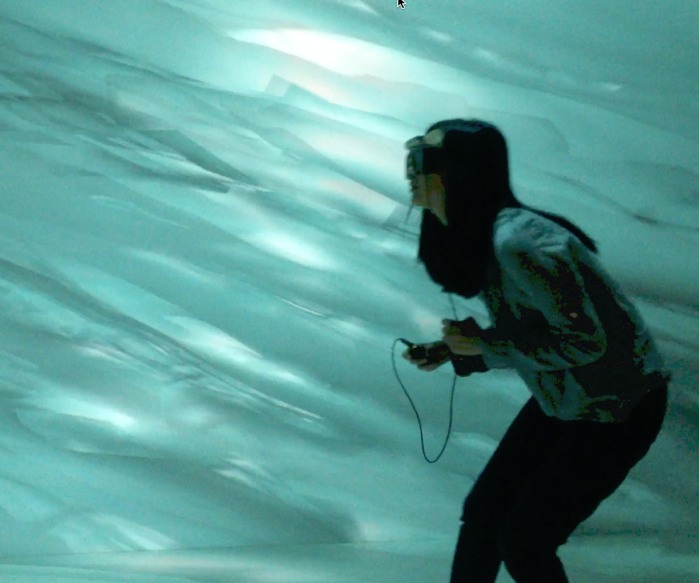Again again, we start: “Spinoza offers philosophers a new model: a body. He proposes to establish a body as a model: ‘We do not know what a body can do…’ This declaration of ignorance is a provocation. We speak of consciousness and its decrees, of the will and its effects, of the thousand ways of moving the body, of dominating the body and the passions — but ‘we do not even know what a body can do’ (Spinoza, Ethics III, 2, scholium).” (Deleuze, Spinoza, “On the difference between the ethics and a morality,” 17-18)So a seminar on questions, on reading and writing closely, on improvising theory, on improvisation on bodies and as bodies:
What can a body do?
How can a body improvise?
How does a body remember?
How does a body end?
How does a body become value?
How does a body anticipate?
How do habits become?
How can a body be rendered?
How do bodies differ?
How does a body question?
These questions will be explored through individual and group projects. I will have syllabic choices – a small reading or two for each week – but everyone will also read different other things (texts, media, life), with the aim of working out knots of concepts and methods. Participants are required to read and post notes on reading: teaching others what has been read, and posing and expanding the questions, building up arguments not for the texts but for the concepts and methods being worked on.
For your readings I’ll give you a practice to apply to them, to sit or stand or play with them, to learn to read them as a writer, and to write about this process. Reading, thinking, and writing as practices that require practice, training, endurance, and patience. This practice too can be experienced as a bodily practice – however peculiar – with its histories and politics, as well as its improvisations. You will be encouraged to compare this body practice with other ones you regularly practice, to study their affinities and divergences, understand how they play with the questions each week.
Syllabus Design – talk to your mentors and friends (and enemies) look through sample syllabi, research syllabi and readings according to your own discipline and interests, and then make a syllabus of 8 weeks. (don’t worry, it can change), if you are fascinated by an existing one, you can adapt it. the point is to choose readings that help you along whatever trajectory you think you are on. Then each week you will apply your syllabus to that week’s question. Second Week’s Question: How can a body improvise? How many different ways do the different readings inspire you to answer this? Following weeks we will roll dice to decide which question we are answering.
Body Practices – find a body practice that you don’t already do regularly to start doing regularly
- what do you learn from them that you didn’t know, a new body practice, because you then oppose it to your current ones, to compare, measure
- look for the affinities and the creative divergences
- how do they play with the questions in ways you (could not) have not thought of (ie. “where does a body end?”)
Summary of the plan for second class:
- Each of you designs an 8-week syllabus
- Each of you chooses a new body practice and starts
- Read your first-week readings
- Post on your readings (using Questioning a Text, below)
- Post how your readings inspire new ways of answering this week’s question: “What can a body do?”
- Post how your body practice inspires new ways of answering this week’s question.
- Do all these posts by Tuesday at 10pm
I strongly encourage you to visit: http://academicmuse.org This is the site by Alan Klima on creative academic writing practices. It includes some really nice exercises, a future bootcamp, and a lot of meditations on how to write academically.
